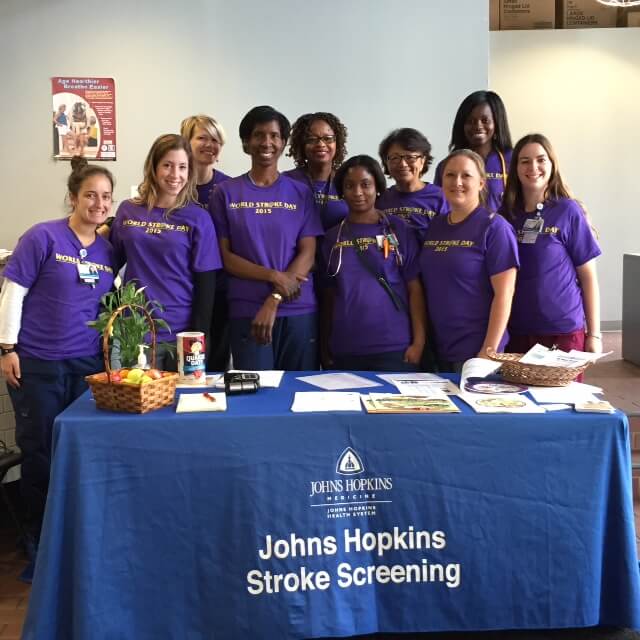Stroke Support, Education and Community Outreach
Johns Hopkins Comprehensive Stroke Center offers a variety of stroke education programs and support groups for Johns Hopkins patients, as well as outreach programs for our local communities.
Support Groups and Resources
- Stroke support group and outreach at Johns Hopkins Bayview
- Support group finder | American Stroke Association
- Resources for Stroke Survivors in Maryland
- Find help | Johns Hopkins Community Resources
Free Stroke Education Sessions
Patients who are discharged home after hospitalization for stroke are vulnerable to complications due to risk of second stroke, delay in getting rehabilitation therapy or because of pre-existing medical conditions that have worsened after the stroke.
To address these needs, we developed a new program called Joint Stroke Transitional Technology-Enhanced Program (JSTTEP). As part of it, we are hosting free stroke education sessions for stroke patients, their families and care partners. The sessions are led by professionals at the Johns Hopkins Comprehensive Stroke Center. Although the sessions are optional, we encourage you to attend, as it’s a great opportunity to ask questions and meet other stroke survivors.
When: last Tuesday of the month at 5 p.m.
Discussion topics include:
- Stroke risk factors
- Medications
- Nutrition
- Therapy
- Safety
- Wellness
Contact
If you have been treated for stroke at Johns Hopkins, you will receive an invitation to attend an education session. Please register in advance.
If you have been treated for stroke outside of Johns Hopkins, our education sessions are still available to you. Please email Amelia Tenberg, CRNP at [email protected] with a request to participate.
Community Education

The Johns Hopkins Stroke Center Community Outreach Program, led by Dr. Victor Urrutia and Dr. Brenda Johnson, was created in 2008 as an innovative approach for assessing for risk factors in the community and educating people about stroke and how to prevent it.
The program offers biweekly stroke screening and education sessions at the Northeast Market. Education is delivered 1:1, based on personal risk factors identified during a screening. Since the start of the program, we have screened approximately 1,300 people.
We have developed strong collaborations within our institution and the community in effort to reach those most at risk for stroke. We have studied the impact of these screening/education efforts.
